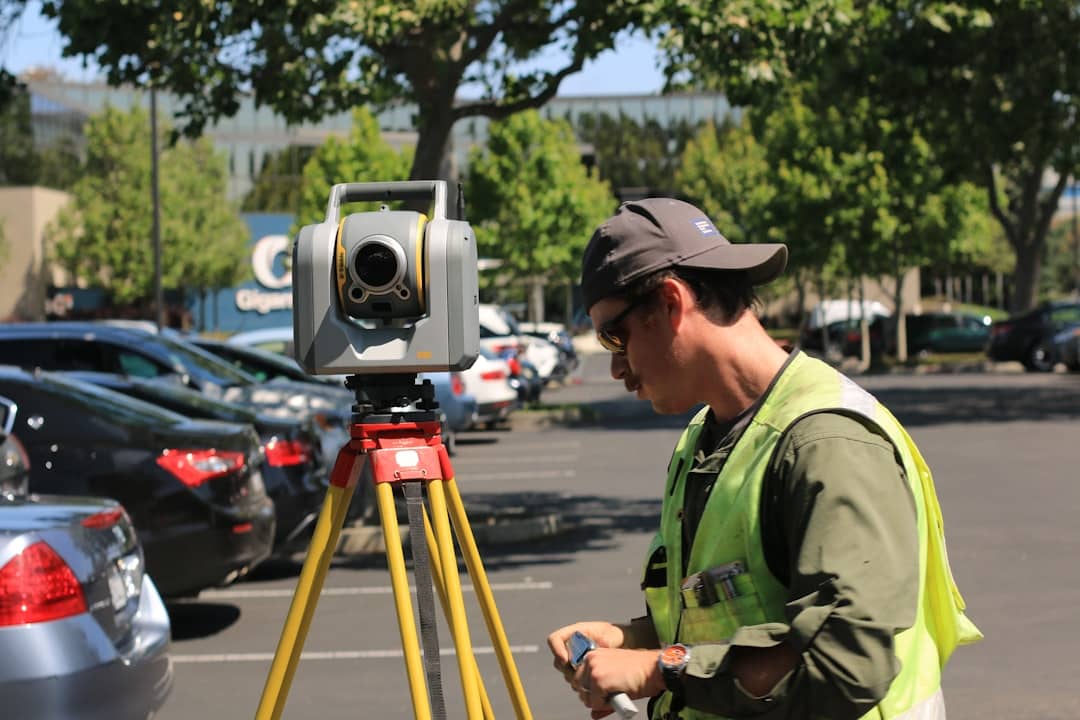
Land Valuation in West Bengal: Understanding Property Prices
Land valuation plays a critical role in West Bengal’s real estate sector, serving as a fundamental process for determining the monetary worth of land and property. This valuation is essential for numerous purposes, including property transactions, leasing agreements, taxation assessments, and development projects. In West Bengal, the value of land is influenced by a complex interplay of factors, such as geographical location, available infrastructure, market demand and supply dynamics, governmental policies and regulations, and prevailing economic conditions.
The land valuation process involves a comprehensive assessment of multiple elements, including the physical characteristics of the land, its specific location within the region, and current market trends. To navigate the real estate market effectively in West Bengal, it is crucial to have a thorough understanding of the various factors that impact property prices and the methodologies employed in land valuation. This knowledge enables stakeholders to make well-informed decisions when engaging in real estate transactions or investments within the state.
Key Takeaways
- Land valuation in West Bengal is influenced by various factors and methods, and is subject to government regulations and infrastructure development.
- Factors influencing property prices in West Bengal include location, size, accessibility, amenities, and market demand.
- Methods of land valuation in West Bengal include sales comparison approach, income capitalization approach, and cost approach.
- Government regulations play a significant role in land valuation through zoning laws, land use regulations, and property tax policies.
- Challenges in land valuation in West Bengal include lack of transparency, data availability, and uniformity in valuation methods.
Factors Influencing Property Prices in West Bengal
Supply and Demand Dynamics
The demand and supply dynamics also play a crucial role in determining property prices. Areas with high demand and limited supply tend to have higher property prices, while areas with oversupply and low demand may experience lower property values. Economic conditions such as inflation, interest rates, and employment levels also impact property prices.
Property Condition and Surrounding Environment
The condition and age of the property, as well as the surrounding environment and neighborhood, can influence its value. Understanding these factors is essential for accurate land valuation in West Bengal. Additionally, the development and infrastructure in the area also influence property prices. Areas with good infrastructure such as roads, public transportation, schools, hospitals, and shopping centers tend to have higher property prices.
Government Policies and Regulations
Government policies and regulations also play a crucial role in influencing property prices. Zoning regulations, building codes, land use restrictions, and taxation policies can impact the value of land and property. Additionally, political stability and security in an area can also influence property prices. It is important to consider all these factors when valuing land in West Bengal.
Methods of Land Valuation in West Bengal

There are several methods used for land valuation in West Bengal. The comparative method is one of the most commonly used approaches, which involves comparing the property being valued with similar properties that have been recently sold in the same area. This method takes into account the location, size, condition, and amenities of the properties to determine a fair market value.
The income approach is another method used for valuing income-generating properties such as rental properties or commercial buildings. This approach involves estimating the potential income that the property can generate and applying a capitalization rate to determine its value. The cost approach is another method used for land valuation, which involves estimating the cost of replacing the property with a similar one at current market prices.
This method is commonly used for valuing new properties or properties with unique features that make it difficult to find comparable sales. The residual method is often used for valuing development land, where the value of the land is determined by subtracting the cost of development from the expected sales value of the developed property. These methods are used by real estate professionals and appraisers to determine the value of land and property in West Bengal.
Role of Government Regulations in Land Valuation
| Government Regulation | Impact on Land Valuation |
|---|---|
| Zoning Laws | Can restrict land use and development, affecting land value |
| Building Codes | Ensure safety and quality of construction, impacting land value |
| Environmental Regulations | Protect natural resources and ecosystems, influencing land value |
| Property Taxation | Can directly affect the cost of owning land and its value |
Government regulations play a significant role in land valuation in West Bengal. Zoning regulations, building codes, and land use restrictions imposed by the government can impact the value of land and property. These regulations determine how the land can be used and developed, which can affect its market value.
Additionally, taxation policies such as property taxes and stamp duties can also influence property prices. The government’s infrastructure development initiatives and public investment in an area can also impact property values. Government regulations are essential considerations in land valuation as they can have a significant impact on the value of land and property in West Bengal.
Challenges in Land Valuation in West Bengal
Land valuation in West Bengal faces several challenges. One of the main challenges is the lack of reliable data on property transactions and market trends. The real estate market in West Bengal is often unorganized, making it difficult to obtain accurate information on property sales and rental values.
This lack of data can make it challenging to determine fair market values for properties. Another challenge is the presence of informal or unregistered transactions in the real estate market, which can make it difficult to assess the true value of properties. Additionally, rapid urbanization and population growth in West Bengal have led to increased demand for land and housing, leading to fluctuations in property prices.
These challenges make it important for real estate professionals to use multiple methods and sources of data for accurate land valuation.
Impact of Infrastructure Development on Property Prices
The Correlation Between Infrastructure and Property Prices
Areas with well-developed infrastructure, such as roads, public transportation, schools, hospitals, and shopping centers, tend to have higher property prices. This is because infrastructure development enhances the livability and convenience of an area, making it more attractive to potential buyers or tenants.
Increased Demand and Economic Activity
Improved infrastructure leads to increased demand for properties in those areas, which can drive up property prices. Furthermore, infrastructure development can lead to increased economic activity and investment in an area, further boosting property values.
Considerations for Real Estate Professionals
It is essential for real estate professionals to consider the impact of infrastructure development when valuing land and property in West Bengal. By doing so, they can provide more accurate valuations and make informed decisions in the real estate market.
Future Trends in Land Valuation in West Bengal
The future of land valuation in West Bengal is likely to be influenced by several trends. With rapid urbanization and population growth, there will be an increasing demand for housing and commercial properties, leading to higher property prices. Infrastructure development initiatives such as metro rail projects, road expansions, and smart city initiatives will continue to impact property values in West Bengal.
Additionally, advancements in technology and data analytics will enable more accurate and efficient land valuation processes. The real estate industry is also likely to see more transparency and regulation, which will help improve the reliability of property data and transactions. These trends will shape the future of land valuation in West Bengal and will require real estate professionals to adapt to changing market dynamics.
In conclusion, land valuation in West Bengal is influenced by various factors such as location, infrastructure, demand and supply dynamics, government regulations, and economic conditions. Understanding these factors is essential for accurate land valuation. There are several methods used for valuing land in West Bengal including the comparative method, income approach, cost approach, and residual method.
Government regulations play a significant role in influencing property prices through zoning regulations, taxation policies, and infrastructure development initiatives. The future of land valuation in West Bengal will be shaped by trends such as rapid urbanization, infrastructure development, technological advancements, and regulatory changes. It is important for real estate professionals to stay informed about these factors and trends to make informed decisions in the real estate market.
If you are interested in learning more about land valuation in West Bengal, you may want to check out this article on mastering the art of house valuation. This article provides accurate calculation techniques for valuing properties, which can be helpful when determining the value of land in West Bengal.
FAQs
What is land valuation in West Bengal?
Land valuation in West Bengal refers to the process of determining the fair market value of a piece of land in the state. This valuation is important for various purposes such as taxation, sale, purchase, and development of land.
Who is responsible for land valuation in West Bengal?
The land valuation in West Bengal is typically carried out by the state government’s revenue department or the local municipal authorities. They use various factors such as location, size, and potential use of the land to determine its value.
What factors are considered in land valuation in West Bengal?
The factors considered in land valuation in West Bengal include the location of the land, its size, shape, accessibility, proximity to amenities and infrastructure, zoning regulations, and potential for development.
Why is land valuation important in West Bengal?
Land valuation is important in West Bengal for various reasons such as determining property taxes, assessing the value of land for sale or purchase, securing loans against the land, and planning for land development and infrastructure projects.
How is land valuation conducted in West Bengal?
Land valuation in West Bengal is conducted using various methods such as the sales comparison approach, income approach, and cost approach. These methods involve analyzing recent sales of similar properties, potential income from the land, and the cost of replacing the land, respectively.

